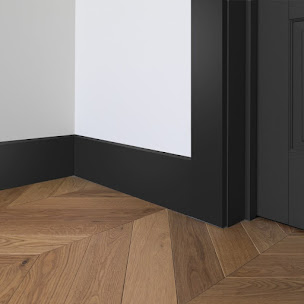Why Vinyl Sheet Flooring is Perfect
Vinyl flooring is renowned for its toughness. This indicates that the majority of vinyl sheet flooring is long-lasting, water-resistant, and requires very little care. Sheet Vinyl Flooring, if sheet include a wear layer, often won't stain and can withstand a lot of harm, making them a fantastic alternative for highly-traveled areas.
Because sheet vinyl is constructed of water-resistant materials like PVC, it is the ideal flooring choice for parts of the house that are subject to flooding. Any area in your house would benefit from sheet vinyl, but the kitchen, laundry room, basement, and bathrooms are where it shines because of their exceptional water resistance.
Pros of vinyl flooring:
Water-resistant:
Because sheet vinyl is constructed of waterproof materials, it is the ideal choice for regions of your house that are susceptible to flooding. Laundry rooms, bathrooms, and basements are spaces where vinyl sheeting really shines.
Comfortable:
Vinyl flooring feels "softer" and more "padded" underfoot when compared with materials like stone or oak because of its layered construction. These layers act as insulation and help maintain the flooring's steady temperature all year long. Additionally, vinyl may be soundproof, making any space more peaceful and echo-free.
Stain resistant:
A clear protective layer protects the floor from spots and spills in printed vinyl flooring tiles and sheets. These materials require very little upkeep and are very easy to keep clean. Solid and hybrid vinyl tiles lack this surface defense, making them more prone to stains and necessitating periodic stripping and polishing.
Easy to install:
The vinyl flooring market has developed, making the product more user-friendly for DIY projects. Vinyl used to only be offered in bulky, awkward sheets, but modern tiles as well as planks are much simpler to install and require no sawing or hammering. Most high-end manufacturers now provide "self-adhesive" vinyl; all you have to do is remove the protective backing and press the material onto well-prepared flooring.
Cons of vinyl flooring:
Cannot be refinished:
Vinyl Sheet cannot be repaired since it has just one wear layer above the design layer. When a floor is broken, it must either be completely replaced or just the damaged portions need to be repaired. This is particularly true for vinyl sheets or vinyl of poor quality.
Damage from the subfloor:
It's crucial to have a completely flat, smooth surface to work on while installing vinyl sheet flooring. Due to the relative softness of vinyl, even minute grains entangled beneath the flooring can gradually degrade the substance, resulting in lumps on the surface. These will gradually degrade the fabric, leading to rips and tears.
Difficult to repair:
Whenever a repair is necessary, there are just two possibilities: The first and least preferable choice is to change the floor entirely. The second option is to change the flooring exactly where the damage was in that particular area. The challenge with that is having additional flooring material on hand for this repair and cutting the repaired area to match the floor's design.




Comments
Post a Comment